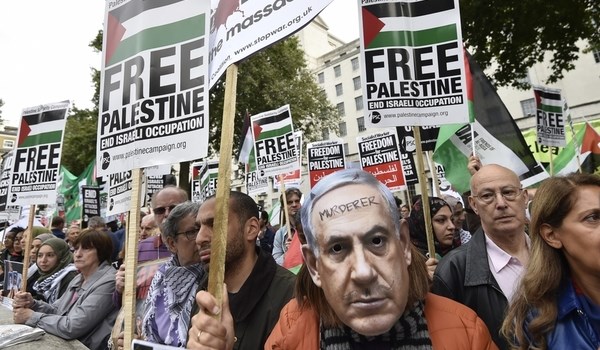
RNA - Standard rules of non-interference on campus have been contradicted by training given to universities under the government's Prevent counter-extremism strategy, Middle East Eye reported.
The guidance advises universities to ensure "independent and effective chairing" of events and to measure guests' views against issues, including Palestine and even opposition to Prevent, which may indicate signs of "extremism".
The insistence on "independent chairs" has in the past month threatened the cancellation of events on human rights abuses in Palestine at the University of Cambridge and a discussion on the Boycott, Divestment and Sanctions movement against Israeli occupation at the London School of Economics.
In some cases, university objections were raised hours before the events were due to take place.
But the guidelines, available on the Safe Campus Communities website, are not, in fact, part of any statutory obligation under the Prevent strategy. Rather, they are drawn up by the Higher Education Funding Council for England and Universities UK, which represents higher education institutions, to protect the "reputation" of institutions.
Earlier this month, the LSE told academics hosting an event on the BDS movement to replace the advertised chairwoman, Ayca Cubukcu, a Turkish academic who specialises in the Middle East, with an "independent" university appointee.
Cubukcu's removal from the event a day before it was due to take place, came after claims by a pro-Israeli activist that the institution was breaking its own rules on neutrality.
Cubukcu was replaced by Eric Neumayer, a professor from the LSE's geography department. Dr Anne Alexander, a University of Cambridge researcher present at the event, told Middle East Eye Neumayer had told her it was "prudent" to have a "neutral chairperson".
Alexander said Cubucku's removal had very "worrying implications for academic freedom".
Academics who are Palestinians, Arabs or Muslims are more likely to support Palestinian rights, and thus have their views labelled 'controversial'
"I am concerned that the way in which the requirement is applied may be discriminatory - whose test of 'neutrality' does the chair have to fulfil?" asked Alexander.
"I can easily imagine situations where certain categories of people may be routinely subjected to a greater degree of scrutiny about their opinions and actions than other categories of people.
"But when we apply this to specific issues, academics who are Palestinians, Arabs or Muslims are more likely to support Palestinian rights, oppose Israeli settlements and thus have their views labelled as 'controversial,' meaning that there is a racist logic at work."
An LSE spokesperson said it had intervened after it was revealed that Cubukcu had signed petitions "relating to the topic of discussion".
"It was deemed prudent to have in place a chair that would be less likely to be subject to accusations of bias from members of the audience," the spokesperson said.
At the University of Cambridge, Dr Ruba Salih, a Palestinian academic from the School of Oriental and African Studies in London, was scheduled to moderate an event on Palestinian rights by the local student-led Palestine society.
Hours before the event was due to take place, university officials threatened to close it down if it did not allow its director of communications, Paul Mylrea, to host the event.
The university told the Palestine society that Mylrea was "experienced ... and neutral" and gave no justification on why Salih could not host the event.
This prompted more than 500 academics, including Noam Chomsky, to sign an open letter condemning the move and claim the university was waging a "crackdown on free speech".
A university spokesperson told MEE that it was "fully committed to freedom of speech and expression ... and that events will be well-chaired in order to ensure open, robust and lawful debate."
It added: "Following calls from the organisers for extra safety measures, a neutral chair was provided to ensure that all sides were represented in what is an important and often emotionally charged debate."
Organisers told MEE that they had asked for extra security to ensure the safety of its panellists as the Palestine society's events have been disrupted in the past.
847/940